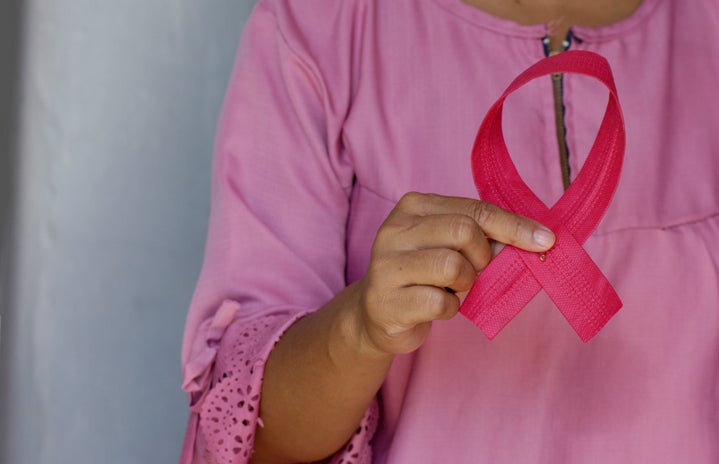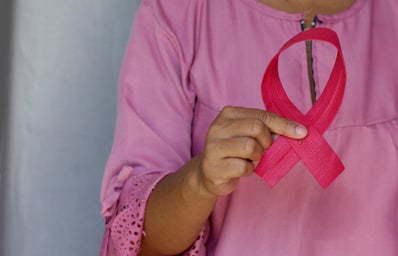It’s not enough to be aware of breast cancer, we have to be alert as well. This month is dedicated to Breast Cancer Awareness, with pink company branding, 5k’s, and donation requests at the grocery checkout. Helping with cancer research is fantastic, but that isn’t what awareness is all about. As women, we also need to be aware of our bodies because many breast cancer survivors are those who found breast abnormalities early, and often, by themselves.
Almost 80% of women under the age of forty find breast abnormalities with a self-test, rather than a mammogram, as the breast tissue of women under 40-45 is too dense to be tested effectively. It’s sometimes uncomfortable to talk about, but as a young woman, you should be performing a self-exam every month, especially if your family has a history of breast cancer. Standing up or lying down, just use three fingers to feel around the lower armpit and breast to ensure that there are no abnormal lumps, deformations, or discoloration, which are the most common signs of early breast cancer. You know your body better than anyone, so if you think you’ve found an abnormality, you’re probably right.
Only about 6% of breast cancer patients are under 40, but for those diagnosed, the side effects can be much more aggressive and the survival rates are much lower. Breast cancer treatments in young women can also have a negative effect on fertility, as well as cause early menopause. So, detecting cancer in its early stages is imperative to one’s health. Those with a family history of breast cancer, especially young African American women with a family history of breast cancer, need to be aware of their bodies at all times.
I don’t want to scare anyone into getting a mammogram at the ripe age of 20, but the truth of the matter is that 250,000 women under 40 are diagnosed every year. It isn’t enough to just be aware of breast cancer, we have to be vigilant of our own bodies. Swelling, discharge, lumps, and discoloration are all early signs of breast cancer, and though you should have trust in your doctor to diagnose you, you should also have trust in yourself.

The early stages of breast cancer are very treatable and usually don’t even require chemotherapy, which means that knowing how and what to look for is the first step and early detection is key. So, don’t panic if your family has a history of breast cancer, because there are plenty of ways of stopping the spread quickly and efficiently.
I have several aunts who have had and survived breast cancer, so I am at very high risk for contracting it. These monthly self-checks aren’t optional for me because of my family history. It’s uncomfortable to talk about self-breast examinations, but it’s very important!
Women are smart enough to detect even the smallest of changes in their bodies and are certainly strong enough to overcome these changes. Stay informed and stay vigilant because this month isn’t just about being aware of breast cancer, it’s about understanding breast cancer and how to combat it. Donating to research is a great way to show your support, but being conscious of our own health is just as crucial because each and everybody counts in the fight against breast cancer.




